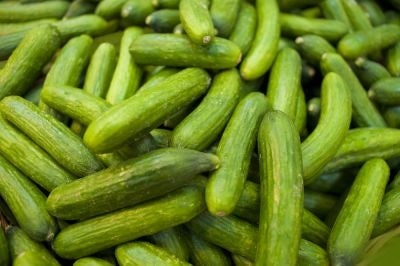Your support helps us to tell the story
From reproductive rights to climate change to Big Tech, The Independent is on the ground when the story is developing. Whether it's investigating the financials of Elon Musk's pro-Trump PAC or producing our latest documentary, 'The A Word', which shines a light on the American women fighting for reproductive rights, we know how important it is to parse out the facts from the messaging.
At such a critical moment in US history, we need reporters on the ground. Your donation allows us to keep sending journalists to speak to both sides of the story.
The Independent is trusted by Americans across the entire political spectrum. And unlike many other quality news outlets, we choose not to lock Americans out of our reporting and analysis with paywalls. We believe quality journalism should be available to everyone, paid for by those who can afford it.
Your support makes all the difference.As reports continue to mount of E.coli poisoning across Europe from tainted cucumbers, consumers are being reminded to be extra vigilant about food safety and food handling.
On Monday, the death toll from E.coli-laced organic cucumbers - believed to have originated from Spain - rose from 10 to 11, all in Germany, the country hardest hit from the outbreak.
German media is also reporting that the virulent strain of E.coli has sickened about 1,200 people in that country.
Other cases have been reported in Austria, the Netherlands, Sweden, Denmark and the UK.
While health officials are warning consumers in Germany to refrain from eating any cucumbers in that country until further testing is carried out, here are a few general reminders courtesy of the US Food and Drug Administration and Livestrong.com on how to handle and prepare produce for safe consumption and avoid the risk of foodborne illnesses.
At the grocery store:
- Purchase produce that isn't bruised or damaged.
- When selecting fresh-cut produce like half a watermelon or bagged mixed salad greens, make sure they were refrigerated or surrounded by ice.
- Bag fruits and vegetables separately from meat, poultry, or seafood.
Storage tips
- Keep the fridge temperature at 40° F (4° C) or below.
- All produce that is purchased pre-cut or peeled should be refrigerated immediately.
Handling tips
- When preparing any fresh produce wash your hands for 20 seconds with warm water and soap before and after preparation.
- Cut away any damaged or bruised areas on fresh fruits and vegetables. Produce that looks rotten should be discarded.
- All produce should be thoroughly washed before eating, including produce that's been grown conventionally, organically or at home, or from a farmer's market. Wash fruits and vegetables under running water just before eating, cutting or cooking.
- Even if you plan to peel the produce before eating it is important to wash it first.
- Washing fruits and vegetables with soap or detergent or commercial produce washes is not recommended.
- Scrub firm produce like melons and cucumbers with a clean produce brush.
- Drying produce with a clean cloth towel or paper towel may further reduce bacteria that may be present.
- Sanitize cutting surfaces.
- Since most cases of E.coli contamination are passed from person to person, make sure to wash your hands thoroughly and frequently, and refrain from handling food if you are suffering from diarrhea.
- Symptoms of E.coli infection include abdominal cramps, bloody or non-bloody diarrhea, and occasional nausea or vomiting. In severe cases, it can cause kidney failure and can be life-threatening. Consult a doctor for treatment and keep hydrated.

Join our commenting forum
Join thought-provoking conversations, follow other Independent readers and see their replies
Comments